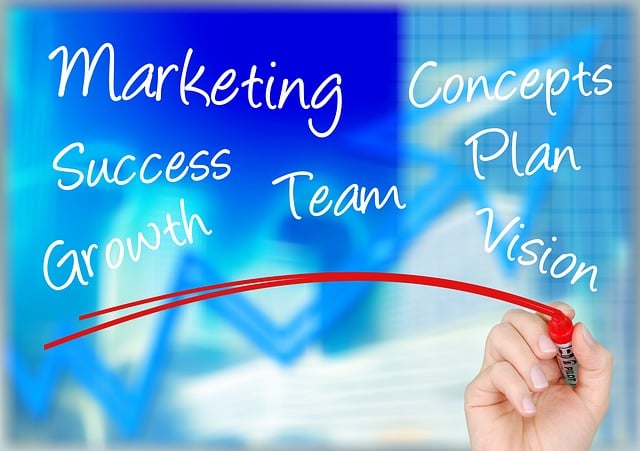AI-driven Robotic Process Automation (RPA) revolutionizes hospitality by automating repetitive tasks and integrating seamlessly with existing AI CRM systems. This technology extracts and analyzes guest data from diverse sources like online reviews, social media, and communications to generate real-time insights, fostering personalized interactions and proactively anticipating guest needs. By leveraging machine learning algorithms, businesses can drive loyalty, boost revenue growth, and maintain a competitive edge in the industry through improved operational efficiency and enhanced customer satisfaction.
“Unleash the power of automation with AI Business Robotic Process Automation (RPA), a game-changer in streamlining operational efficiency. This article explores how RPA, integrated with AI CRM systems, revolutionizes guest loyalty tracking in hospitality. By understanding the fundamentals of AI RPA and its application in CRM, we uncover significant benefits and challenges. Dive into this comprehensive guide to discover how these technologies foster enhanced customer experiences and drive business growth through effective guest loyalty management.”
- Understanding AI Business Robotic Process Automation (RPA)
- Integrating AI CRM Systems for Enhanced Guest Loyalty Tracking
- Benefits and Challenges of Implementing RPA in Customer Relationship Management (CRM) for Hospitality Industries
Understanding AI Business Robotic Process Automation (RPA)

AI Business Robotic Process Automation (RPA) refers to the utilization of artificial intelligence technologies to automate repetitive, rule-based tasks within business processes. This innovative approach leverages machine learning algorithms and natural language processing to mimic human actions, significantly enhancing operational efficiency. By automating mundane tasks such as data entry, invoice processing, or even customer service interactions, RPA frees up valuable human resources to focus on more strategic initiatives.
In the context of guest loyalty tracking, AI-driven RPA integrates seamlessly with existing AI CRM systems. It automatically extracts and analyzes guest data from various sources, including online reviews, social media interactions, and direct customer communications. This real-time insights generation enables businesses to personalize experiences, anticipate guest needs, and foster stronger relationships, ultimately driving loyalty and revenue growth.
Integrating AI CRM Systems for Enhanced Guest Loyalty Tracking

In today’s digital era, businesses are increasingly leveraging AI CRM (Customer Relationship Management) systems to enhance guest loyalty tracking. These advanced tools utilize machine learning algorithms to analyze vast amounts of customer data, providing valuable insights into purchasing behaviors, preferences, and trends. By integrating AI into CRM, companies can create highly personalized experiences tailored to individual guests, fostering stronger relationships and boosting loyalty.
AI CRM systems for guest loyalty tracking enable businesses to go beyond basic demographic analysis. They can predict future purchases, suggest relevant products or services, and proactively engage with customers through targeted marketing campaigns. This level of personalization not only improves customer satisfaction but also drives repeat business, ultimately contributing to sustained growth and competitive advantage in the market.
Benefits and Challenges of Implementing RPA in Customer Relationship Management (CRM) for Hospitality Industries

Implementing Robotic Process Automation (RPA) in Customer Relationship Management (CRM) systems can significantly enhance operations within the hospitality industry. One of the primary benefits is improved guest loyalty tracking, enabled by AI CRM systems. Through automated data collection and analysis, these systems can identify patterns and preferences, personalizing interactions to foster stronger relationships with guests. This level of customization increases customer satisfaction and encourages repeat visits, crucial for maintaining a competitive edge in the hospitality sector.
Despite these advantages, challenges exist when adopting RPA in CRM for hospitality. Integration issues between existing systems and new automation tools can be complex and time-consuming. Ensuring data security and privacy is another concern, especially with sensitive guest information. Moreover, while RPA streamlines processes, it may require significant initial investment in technology and training, which could be a challenge for smaller businesses. Nonetheless, effective implementation of RPA in CRM offers hospitality industries an opportunity to optimize operations, enhance guest experiences, and ultimately drive business growth.
AI Business Robotic Process Automation (RPA) is transforming hospitality industries by enhancing customer relationship management (CRM) through advanced AI CRM systems for guest loyalty tracking. As discussed, integrating RPA into CRM offers numerous benefits, such as increased efficiency, improved data accuracy, and personalized guest experiences. However, challenges like initial implementation costs and potential job displacement must be addressed. By overcoming these obstacles, hospitality businesses can leverage the power of RPA to create a competitive edge and foster stronger guest loyalty.
